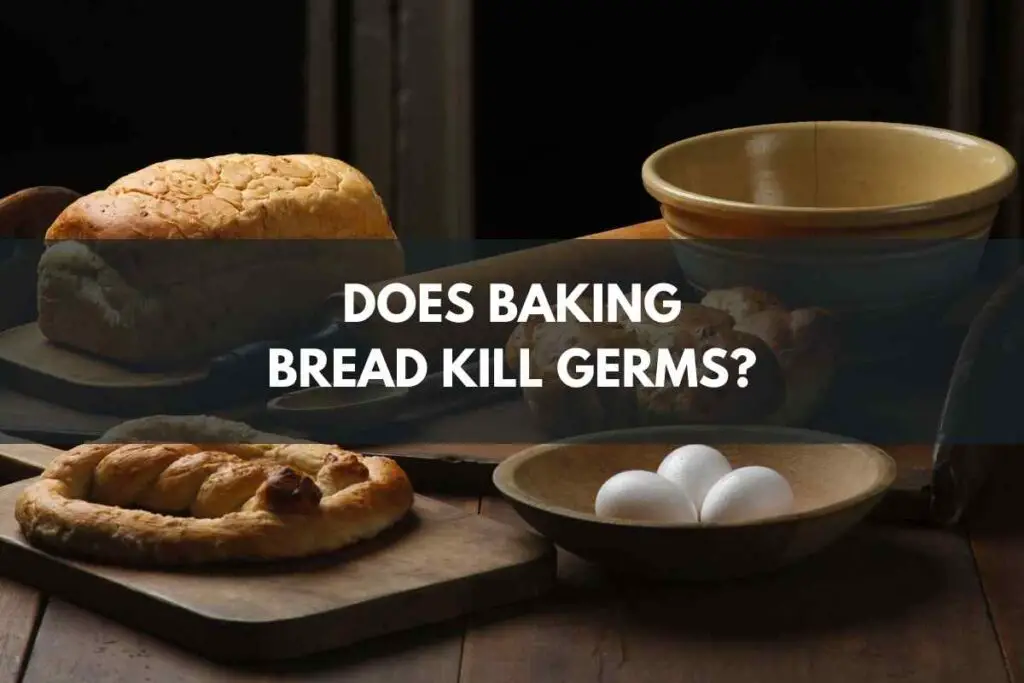Baking bread will not kill all germs but it can reduce the amount of bacteria on the surface of the bread. The heat from baking will kill some bacteria, but not all.
Baking bread does not kill germs, but it does remove them from the surface of the bread. This is because the heat from the oven kills the bacteria on the surface of the bread.
Baking bread is a great way to kill any lingering germs in your kitchen. The high heat of the oven will kill any bacteria on the surface of the bread, leaving you with a safe and delicious loaf to enjoy.

Contents
- Does Baking Bread Kill Germs?
- Does baking in oven kill germs?
- What temperature kills bacteria in bread?
- How long do you have to bake something to kill germs?
- Does baking a pizza kill bacteria?
- What bacteria Cannot be killed by cooking?
- How Long Does It Take For Bread To Go Bad?
- How Do You Store Bread So It Doesn’t Mold?
- How Do You Keep Bread Fresh For Days?
- How Do You Make Bread Last Longer?
- Facts About Baking Bread
- Conclusion
Does Baking Bread Kill Germs?
Baking bread is a great way to kill germs and bacteria. The high temperatures of the oven help to kill any unwanted organisms.
Does baking in oven kill germs?
What temperature kills bacteria in bread?
How long do you have to bake something to kill germs?
Does baking a pizza kill bacteria?
What bacteria Cannot be killed by cooking?
This is why it is important to bake bread at the proper temperature and for the correct amount of time.
How Long Does It Take For Bread To Go Bad?
Bread is a staple in many households, but how long does it last? The answer may surprise you. Bread typically has a shelf life of 1-2 weeks, but this can vary depending on the type of bread and how it is stored.
For example, bread that is stored in a cool, dry place will last longer than bread that is stored in a warm, humid environment.
There are a few telltale signs that bread is no longer fresh. These include a stale smell, hard texture, and mold. If you see any of these signs, it’s best to throw the bread away.
Bread is a perishable food, so it’s important to keep an eye on it and consume it before it goes bad. With proper storage, you can enjoy fresh bread for 1-2 weeks.
How Do You Store Bread So It Doesn’t Mold?
If you’re like me, you love the smell of fresh bread baking in the oven. But sometimes, no matter how hard you try, that loaf of bread just doesn’t last long before it starts to get moldy. Here are a few tips to help you keep your bread fresh and mold-free for as long as possible.
First, make sure to store your bread in a cool, dry place. A bread box or a cupboard away from the stove are both good options. Second, don’t store your bread in the fridge.
The cool, moist environment is actually ideal for mold growth. Finally, if you see any mold starting to form on your bread, cut off the moldy part and throw it away.
The rest of the loaf should be fine to eat. With these tips in mind, you should be able to enjoy your bread for a little while longer. Just be sure to eat it before it gets too stale!
How Do You Keep Bread Fresh For Days?
There are a few different ways that you can keep bread fresh for days. One way is to store it in a bread box. This will keep the bread from drying out and getting stale.
Another way is to wrap it in a damp paper towel and then store it in a plastic bag. This will also help to keep the bread from drying out.
How Do You Make Bread Last Longer?
There are a few different ways that you can make bread last longer. First, you can store it in a cool, dry place. Bread will usually last for about 2-3 days if stored this way. If you want to keep it for a longer period of time, you can store it in the refrigerator.
Bread will last for about 1-2 weeks when stored in the fridge. If you want to store it even longer, you can freeze it. Bread will last for 2-3 months when frozen. When it comes to keeping bread fresh, there are a few different methods you can use.
Storing bread in a cool, dry place is the best way to keep it fresh for a short period of time. If you need to keep bread fresh for a longer period of time, you can store it in the refrigerator or freezer.
Facts About Baking Bread
- Baking bread kills germs and bacteria that can cause food poisoning.
- Baking bread also kills mold and yeast that can cause spoilage.
- Baking bread at high temperatures creates a crust that is harder for bacteria to penetrate.
- Baked bread is less likely to spoil than bread that is not baked.
- Baked bread has a longer shelf life than bread that is not baked.
- Baked bread is less likely to mold or mildew than bread that is not baked.
- Baking bread creates a product that is safe to eat and less likely to cause food poisoning.
Conclusion
Baking bread does not kill all germs. However, it does reduce the number of live bacteria and mold spores. This can help to prevent the spread of illness and contamination.
